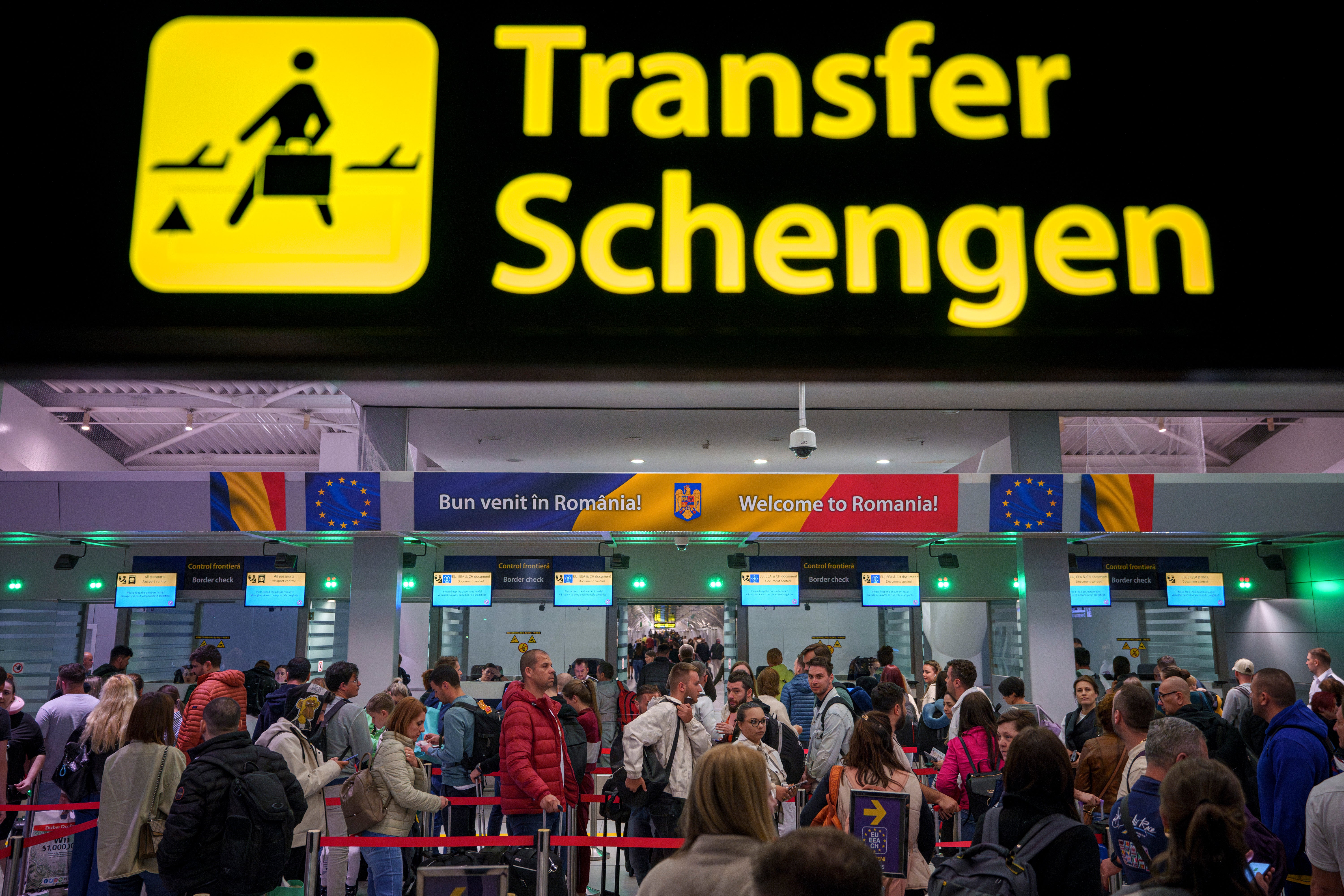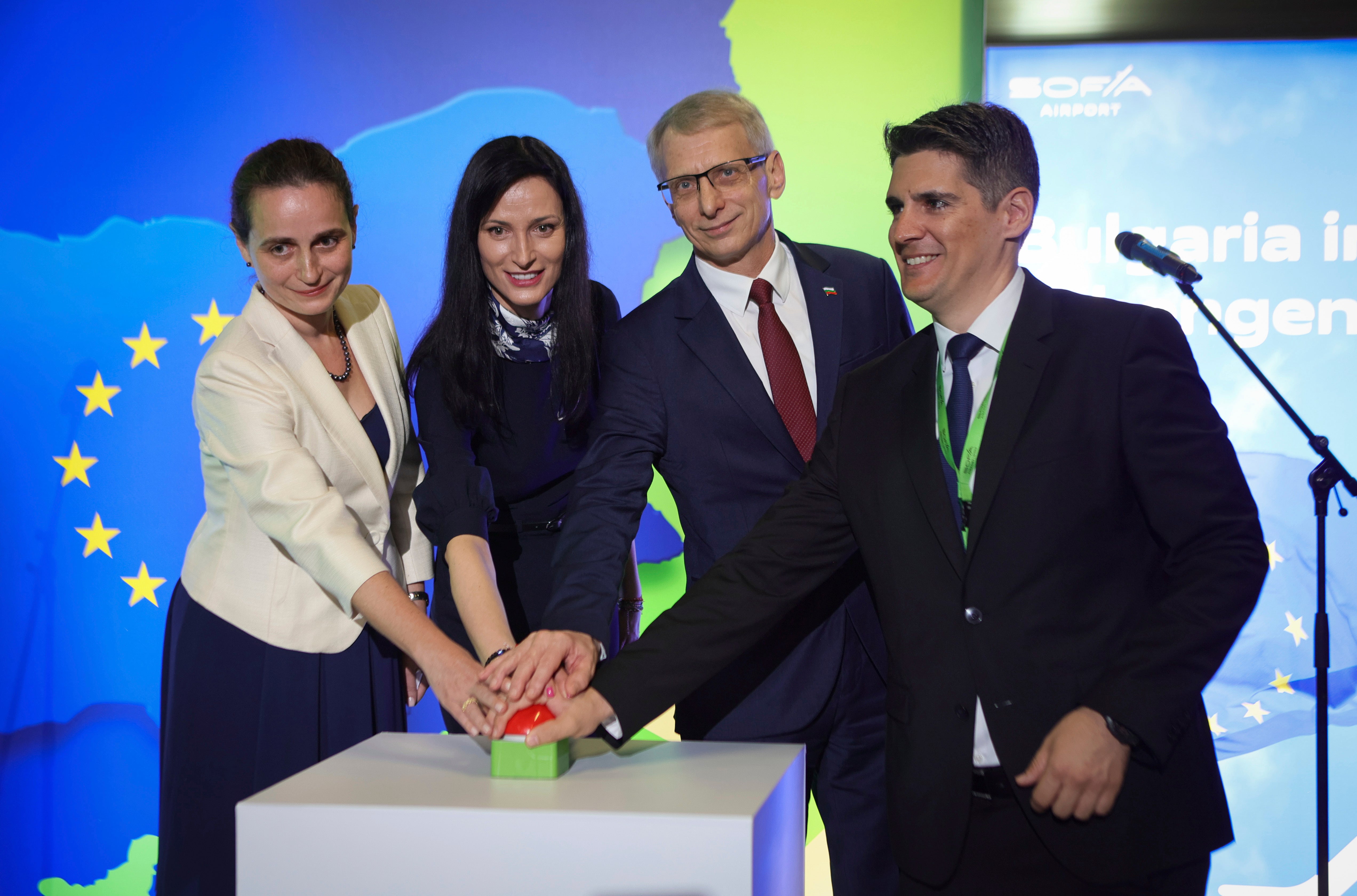Schengen: Two more countries added to ID-check free travel area
The countires officially joined the Schengen area in March after years of negotiations

European Union ministers have agreed to let Bulgaria and Romania join Europe’s ID-check free travel zone, known as the Schengen area, by lifting land border controls from next year.
The news means there will no longer be land boarder controls between Bulgaria and Romania, Romania and Hungary and Bulgaria and Greece.
The countires joined the Schengen area in March after years of negotiations, providing free access for travelers arriving in both countries by air or sea.
However, land border checks remained in place due to opposition, chiefly from Austria, over concerns that the two countries were not doing enough to prevent migrants from entering without authorization.
What changes for tourists?
- Romania and Bulgaria will join the Schengen Area by air and sea, allowing passport-free travel for those arriving by plane or boat.
- The land borders will open.
- This means EU residents and travelers from other Schengen countries won’t need passport checks when flying or sailing into Romania or Bulgaria. Land border crossings will still require passport checks.
- British travelers will still need passports, and visits to these countries will count towards the 90-day limit for non-EU citizens in the Schengen Area. Standard EU passport validity rules (issued within the last 10 years and valid for at least three months after departure) apply.
“Interior ministers have just adopted a decision to lift internal land border controls with and between Bulgaria and Romania,” the Hungarian presidency posted on X.
“A great victory for Bulgaria, Romania, and all of Europe!” Land border checks will end from Jan. 1.
Romania‘s Prime Minister Marcel Ciolacu said the decision would be a “major benefit” to his country’s economy and enable “faster journeys home for the millions of Romanians” living and traveling within the Schengen area.
Freedom of movement is central to European integration. More than 420 million people live in the Schengen area, and their freedom to move across borders helps businesses and tourism to flourish.
Romanian President Klaus Iohannis called it a “natural and necessary step” that will significantly reduce wait times at borders, lower logistical costs for businesses, and raise attractiveness to foreign investors.“Schengen membership has been a strategic objective for our country,” he said in a statement.

“Over time, there have been numerous obstacles, despite Romania‘s technical readiness to meet Schengen standards for many years.”
He added that Romania would “continue to act responsibly to protect and strengthen the EU’s external borders” to manage illegal migration.
The Schengen Area was established in 1985.
Before Bulgaria and Romania‘s partial admission, it was comprised of 23 of the 27 EU member countries, along with Switzerland, Norway, Iceland and Liechtenstein.
Around 3.5 million people cross an internal border each day.
It’s one of the main achievements of the European project. It started as an intergovernmental project between five EU countries- France, Germany, Belgium, the Netherlands and Luxembourg, and has gradually expanded to become the largest free travel area in the world.